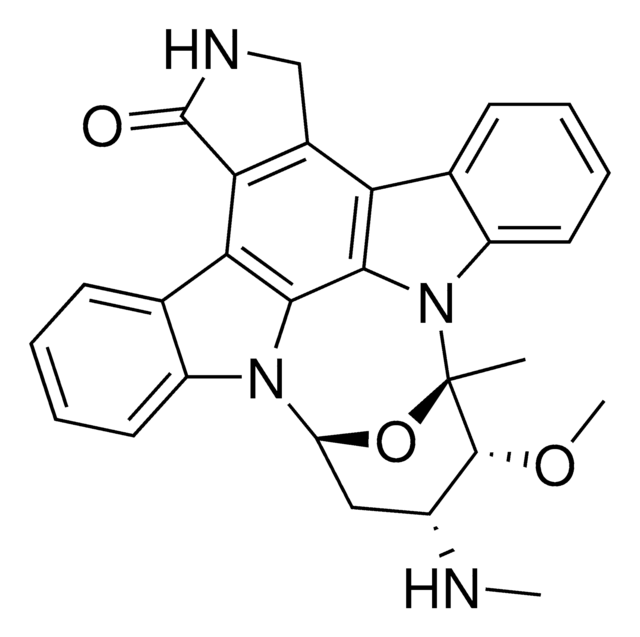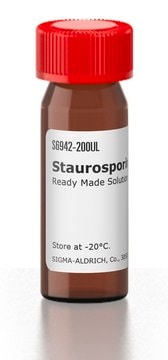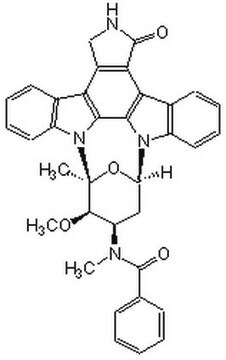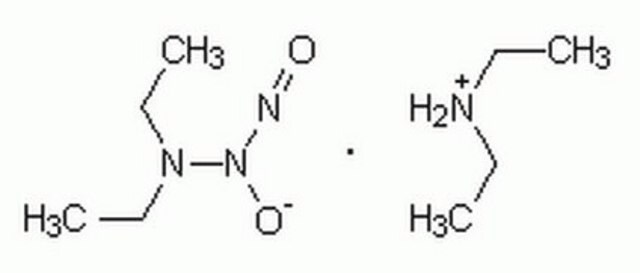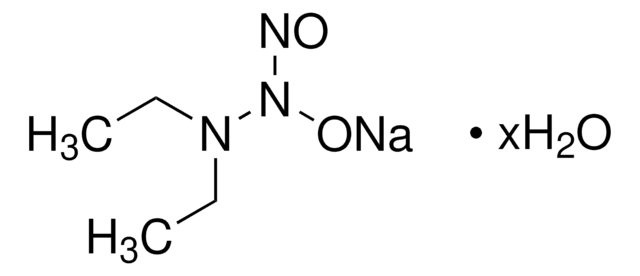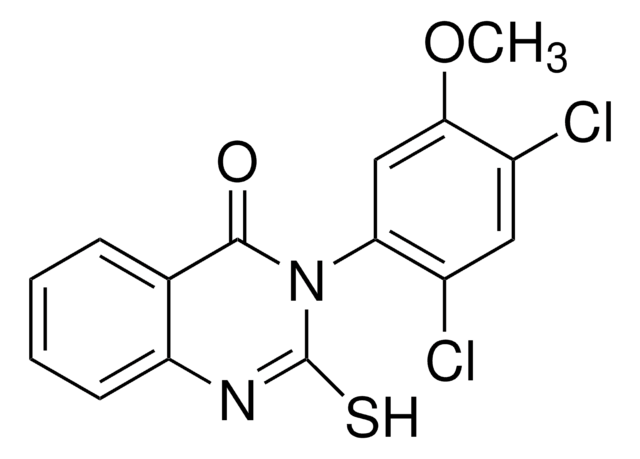569397
Staurosporine
from Streptomyces sp., ≥99% (HPLC), solid, protein kinase inhibitor, Calbiochem
Synonym(s):
Staurosporine, Streptomyces sp., PKA Inhibitor II, MLCK Inhibitor I
About This Item
Recommended Products
product name
Staurosporine, Streptomyces sp., Staurosporine, CAS 62996-74-, is a cell-permeable, potent, reversible, ATP-competitive inhibitor of protein kinases (IC₅₀ = 7, 20, 1.3, 0.7, & 8.5 nM for PKA, CAMK, MLCK, PKC, & PKG, respectively).
Quality Level
Assay
≥99% (HPLC)
form
solid
manufacturer/tradename
Calbiochem®
storage condition
OK to freeze
protect from light
color
white to pale yellow
solubility
DMSO: 5 mg/mL
shipped in
ambient
storage temp.
2-8°C
InChI
1S/C28H26N4O3/c1-28-26(34-3)17(29-2)12-20(35-28)31-18-10-6-4-8-14(18)22-23-16(13-30-27(23)33)21-15-9-5-7-11-19(15)32(28)25(21)24(22)31/h4-11,17,20,26,29H,12-13H2,1-3H3,(H,30,33)/t17-,20-,26-,28+/m1/s1
InChI key
HKSZLNNOFSGOKW-FYTWVXJKSA-N
General description
Biochem/physiol Actions
PKA
Packaging
Warning
Preparation Note
Reconstitution
Other Notes
Nishimura, H. and Simpson, I.A. 1994. Biochem. J. 302, 271.
Bruno, S., et al. 1992. Cancer Res.52, 470.
Kiss, Z. and Deli, E. 1992. Biochem. J. 288, 853.
Vitale, M.L., et al. 1992. Neuroscience51, 463.
Hoffman, R. and Newland, E.S. 1991. Cancer Chemother. Pharmacol.28, 102.
Oka, S., et al. 1986. Agric. Biol. Chem.50, 2723.
Legal Information
Signal Word
Warning
Hazard Statements
Precautionary Statements
Hazard Classifications
Aquatic Chronic 4 - Repr. 2
Storage Class Code
11 - Combustible Solids
WGK
WGK 3
Flash Point(F)
Not applicable
Flash Point(C)
Not applicable
Regulatory Listings
Regulatory Listings are mainly provided for chemical products. Only limited information can be provided here for non-chemical products. No entry means none of the components are listed. It is the user’s obligation to ensure the safe and legal use of the product.
JAN Code
569397-UG:
569397-0UG:
569397-1.1ML:
569397-100UG:
569397-0MG:
569397-5MG:
569397-10MG:
569397-250UG:
569397-1MG:
Certificates of Analysis (COA)
Search for Certificates of Analysis (COA) by entering the products Lot/Batch Number. Lot and Batch Numbers can be found on a product’s label following the words ‘Lot’ or ‘Batch’.
Already Own This Product?
Find documentation for the products that you have recently purchased in the Document Library.
Customers Also Viewed
Our team of scientists has experience in all areas of research including Life Science, Material Science, Chemical Synthesis, Chromatography, Analytical and many others.
Contact Technical Service